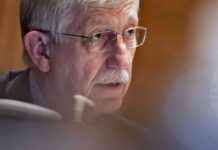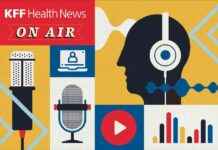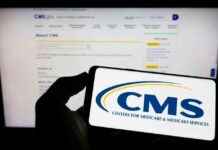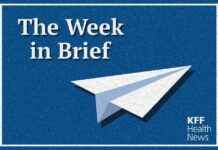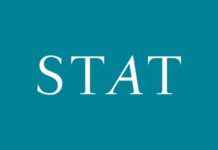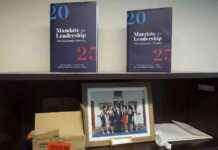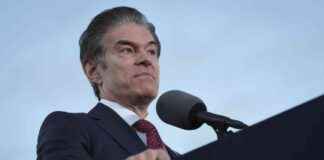In today’s dynamic landscape of healthcare, the conversation around vaccines, pharmacy support, and public health issues is more critical than ever. As we navigate through the myriad complexities of these topics, it is essential to engage in open, honest discussions that shed light on different perspectives and experiences. Let’s delve into the insights shared by various contributors and readers in response to thought-provoking articles featured on STAT’s First Opinion platform.
Former Surgeon General’s Concerns on Vaccine-Preventable Diseases
The article penned by Jerome Adams, the former Surgeon General, highlights the ongoing threat posed by vaccine-preventable diseases amid a backdrop of rising vaccine hesitancy. Adams’ call to attention resonates with many healthcare professionals and patients alike, sparking a crucial dialogue on the importance of vaccination and public health.
In response to Adams’ op-ed, Daniel M. Hesler, a health officer at the Fountain County Health Department in Indiana, offers a unique perspective rooted in his interactions with patients. Hesler shares anecdotes of patients expressing newfound mistrust in vaccines, particularly in the aftermath of Covid vaccine mandates. This shift towards skepticism has given rise to what Hesler terms as “partial/un-vaxxers,” underscoring the nuanced landscape of vaccine acceptance in communities.
Hesler’s poignant reflection on the nomination of RFK Jr. to lead HHS adds a layer of complexity to the discourse. By acknowledging the concerns of rural public health officers and the need for diverse voices in the conversation, Hesler advocates for a more inclusive approach to understanding the root causes of vaccine hesitancy. He emphasizes the importance of engaging with individuals like Kennedy, who can bridge the gap between public health officials and communities grappling with vaccine safety concerns.
As Hesler navigates the delicate balance between upholding public health standards and addressing patient concerns, his message underscores the need for empathy, humility, and collaboration in shaping effective public health strategies. By embracing a holistic view of healthcare that incorporates diverse viewpoints, Hesler advocates for a more inclusive and patient-centered approach to vaccination efforts.
Challenges Faced by Community Pharmacies and the Need for Reform
The article authored by T. Joseph Mattingly II and Kelly E. Anderson sheds light on the struggles faced by community pharmacies in the face of evolving reimbursement models and regulatory challenges. As pharmacies grapple with closures and diminishing resources, the authors highlight the critical role these establishments play in delivering essential healthcare services to patients.
John Colaizzi, a pharmacist at Walgreens, offers a personal perspective on the impact of unfair reimbursement practices on community pharmacies. Drawing from his experience as a third-generation pharmacist, Colaizzi underscores the integral role pharmacies play in providing clinical services beyond mere dispensing. He emphasizes the need for fair compensation and regulatory reforms to sustain the viability of community pharmacies and ensure continued access to healthcare services for patients.
Colaizzi’s call to action resonates with the broader healthcare community, urging stakeholders to prioritize patient needs and advocate for meaningful changes in pharmacy reimbursement practices. By highlighting the human impact of pharmacy closures and the erosion of healthcare access, Colaizzi underscores the urgency of addressing systemic challenges facing community pharmacies.
The responses to the article underscore the interconnected nature of healthcare delivery and the importance of collaborative efforts to safeguard patient care. As pharmacists, healthcare providers, and policymakers navigate the complex landscape of healthcare reform, the voices of those on the front lines serve as a poignant reminder of the need for solidarity, advocacy, and innovation in addressing the evolving needs of patients and communities.
Public Health Implications of ICE Actions and Healthcare Policy Shifts
The article by Eric Reinhart delves into the potential public health catastrophes that may arise from allowing ICE presence in hospitals and the broader implications of healthcare policy shifts on vulnerable populations. Reinhart’s concerns echo the sentiments of healthcare providers like James Misak, who grapple with the far-reaching consequences of policy decisions on patient care and community well-being.
Misak, a family physician in Cleveland, underscores the detrimental impact of ICE raids and proposed policy changes on patient access to care and overall health outcomes. By highlighting the interconnectedness of healthcare policy, social determinants of health, and patient well-being, Misak advocates for a holistic approach to addressing public health challenges and advocating for the health of communities.
In response to the article, readers like Sally Hanes and David Valentine offer personal anecdotes and critiques that enrich the dialogue on healthcare policy and public health advocacy. Their insights underscore the diverse perspectives within the healthcare community and the need for nuanced, patient-centered approaches to addressing complex healthcare issues.
As healthcare providers, policymakers, and community members navigate the evolving landscape of healthcare policy, the voices of those directly impacted by these changes serve as a vital reminder of the human stakes involved. By fostering open dialogue, empathy, and collaboration, stakeholders can work towards meaningful reforms that prioritize patient well-being, equity, and access to quality healthcare for all.


